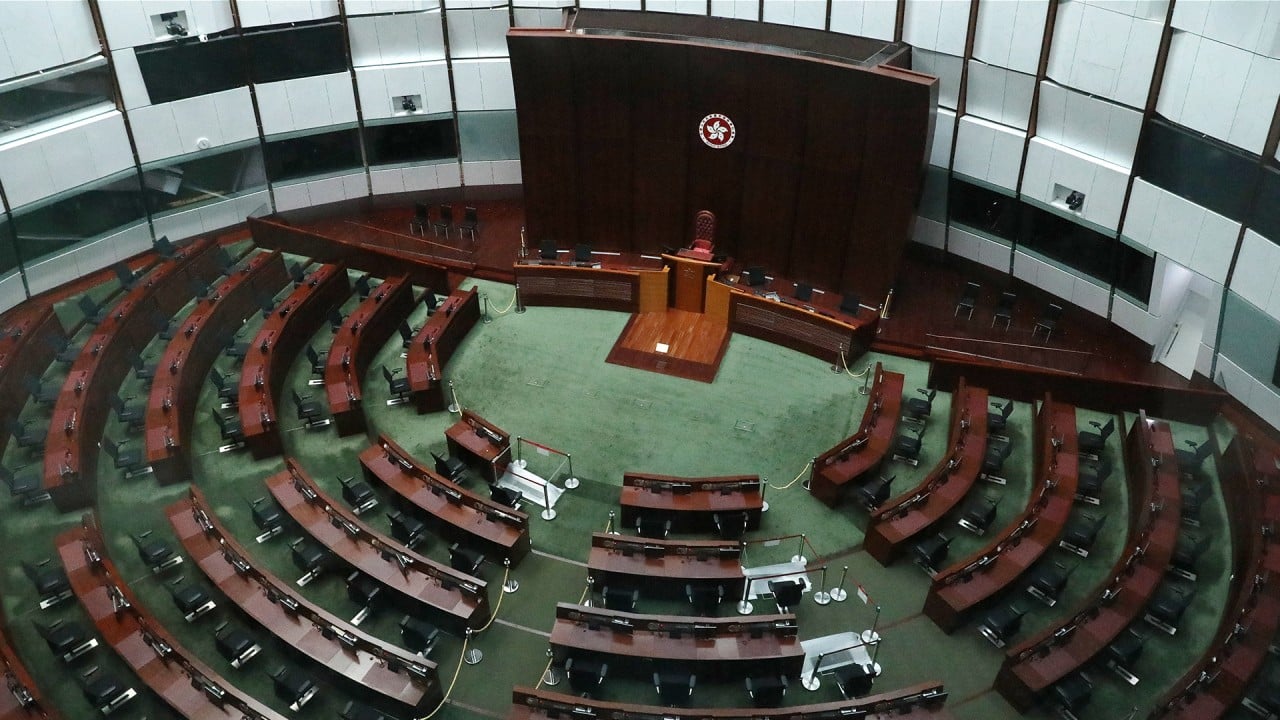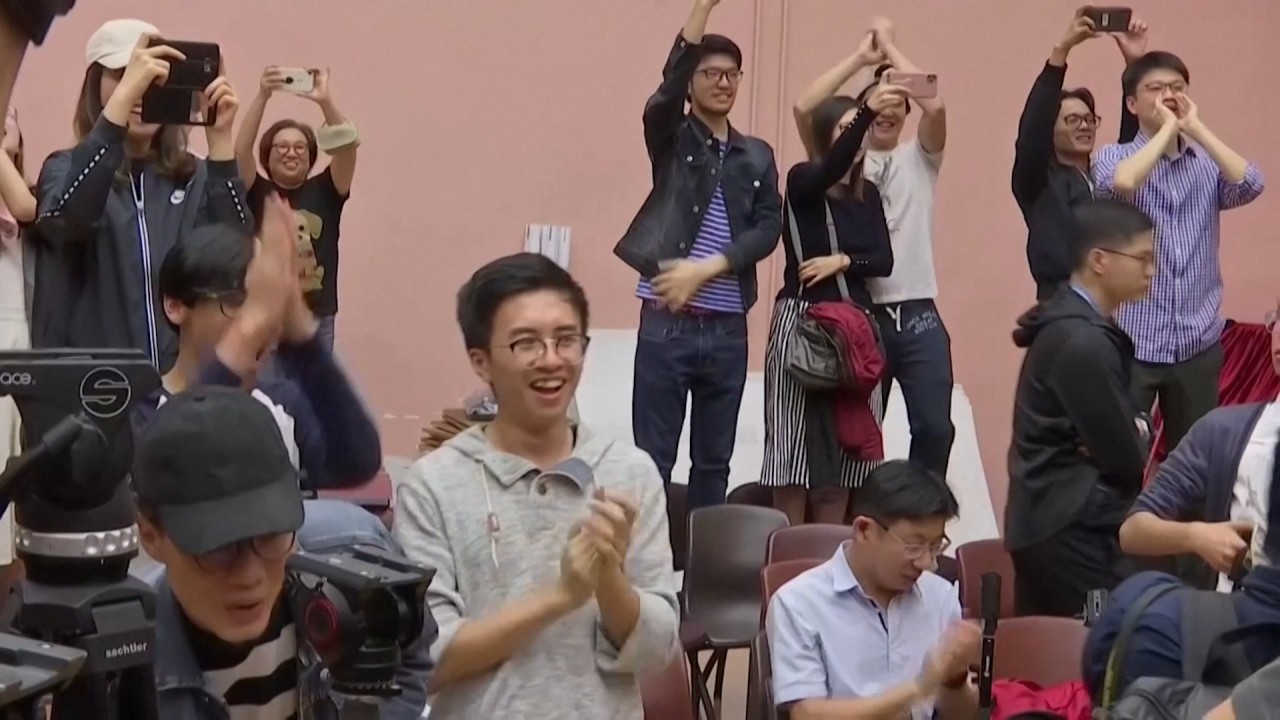
Explainer | Hong Kong elections: debate over proposal to allow voting in mainland China, with critics raising fears of fraud, lack of scrutiny
- With 540,000 Hongkongers in Guangdong, some say allowing them to vote there makes sense
- Opposition camp fears difficulty campaigning, checking on polling stations, counting of votes
The resurgence of Covid-19 cases provided Lam the reason to delay the elections by a year. She said on August 8 that going ahead would have made it hard for voters living away from the city to return, given pandemic restrictions in place. The health risks would also have put off vulnerable older voters from coming out to cast their ballots.
Her suggestion to allow polling stations in Guangdong, as well as priority queues for elderly voters, was hailed by pro-establishment politicians as long overdue. But opposition members objected immediately, and political scholars had reservations too, asking how polls on the mainland would be monitored, and if electoral fraud could be avoided.

Why have polling stations in Guangdong?

Among Beijing-friendly politicians who liked the idea, Tam Yiu-chung, the city’s sole representative in the National People’s Congress Standing Committee (NPCSC), noted that the government had been encouraging Hongkongers to move to the bay area to take advantage of opportunities there.
He argued that the current electoral rule specifying that eligible voters must “ordinarily reside in Hong Kong” should be relaxed. “Society has changed,” he said.
‘Set up polling stations for locals based in bay area to cast votes’
Given technological advances, he felt the authorities should have introduced electronic voting by now. Tam also supported allowing postal voting and priority voting for elderly and vulnerable voters.

03:39
Hong Kong Legislative Council elections postponed by a year
Who is against the idea, and why?
Activist Joshua Wong Chi-fung and opposition lawmaker Eddie Chu Hoi-dick launched a joint petition against allowing polling stations on the mainland, warning it amounted to “handing over the city’s democratic elections to the Chinese Community Party to manipulate”. Mainland authorities might interfere with the elections, they said, and the lack of scrutiny across the border would allow for more electoral irregularities.
They pointed out that in Hong Kong, candidates appoint their own agents at polling stations to monitor polling and the counting of votes. But pro-democracy candidates might not be able to ensure the same scrutiny on the mainland, let alone campaign, as they are either banned from going there or risk arrest.

Political scientist Ivan Choy Chi-keung from Chinese University echoed the concerns, pointing out that electronic and postal voting were not feasible in the current political atmosphere, with public trust in the government at a new low.
“These suggestions go against measures introduced by Hong Kong over the past years to increase the secrecy of elections and ensure voters cast their ballot without pressure,” he said. Even the use of mobile phones has been banned in polling stations.
Choy warned that electronic voting widened the possibility of electoral fraud, making it easy to falsify results and impossible for candidates to monitor the vote-counting process.

02:17
Hong Kong votes overwhelmingly for pro-democracy camp with record turnout in local elections
Have these proposals been made before?
Yes. The suggestion to allow voting outside Hong Kong has been made previously, but in 2018, the government decided against proceeding after a public consultation. Patrick Nip Tak-kuen, the then constitutional affairs chief who now helms the Civil Service Bureau, told Legco that the government would consider the suggestion, but it had to be examined carefully to ensure elections were conducted in a “fair, open and honest manner”.
He said there were complicated logistics and potential legal issues, including how the polling and counting process could be effectively monitored by candidates and their agents, and how ballot papers and ballot boxes would be transported to and from polling stations outside Hong Kong.
Elections delay may boost public distrust of Hong Kong government, group warns
As for electronic voting, the authorities said last year they were studying the use of an electronic poll register to issue ballots more efficiently and accurately, and planning to adopt electronic counting in some functional constituencies with fewer voters. But the government also highlighted concerns, including the risk of hacking and disruptions caused by malfunctioning electronic voting devices. Nip said last year that these issues had to be resolved before electronic voting could be introduced.
In June this year, the Electoral Affairs Commission drew the ire of Beijing-friendly politicians by shooting down a government proposal to set up a special queue for the elderly in future polls, saying support measures were already in place for vulnerable voters. Seniors were perceived as more conservative voters.

How do other countries approach these issues?
Overseas voting – or external voting – exists in other countries, although it is not free from controversy. Critics argue it is unfair to allow people with minimal tax liability and connection to the home country to influence election results.
Where allowed, overseas voting is usually subject to certain conditions and regulations.
Singapore, for example, allows overseas voting for citizens abroad, but they must do so in person at selected overseas polling stations, located in the country’s embassies or consulates.
Britain allows overseas voting for national elections only, and limits it to those who were voters before moving abroad, and who renew their voter registration annually to show that they maintain ties with the country.

Will Hong Kong go ahead with these changes?
Pro-establishment politician Tam has gone on radio and television shows over the past week to pile pressure on the government to proceed with the changes. With Legco polls delayed a year, he said the government had no excuse to duck the matter.
The delayed polls are also likely to extend the pro-establishment bloc’s Legco majority by a year, and this means it is not impossible for Lam’s administration to push through the changes.
However, political scientist Choy said there were many technical and legal issues surrounding external voting and he did not see how the administration could overcome them in a rush. These included how the city’s graft-buster, electoral officials and even police might exert jurisdiction over election activities conducted on the mainland.
In response to questions from the Post, a spokesman for the Electoral Affairs Commission said it remained open to any suggestions to enhance electoral arrangements, but stressed that any change would need amendments to the law.

